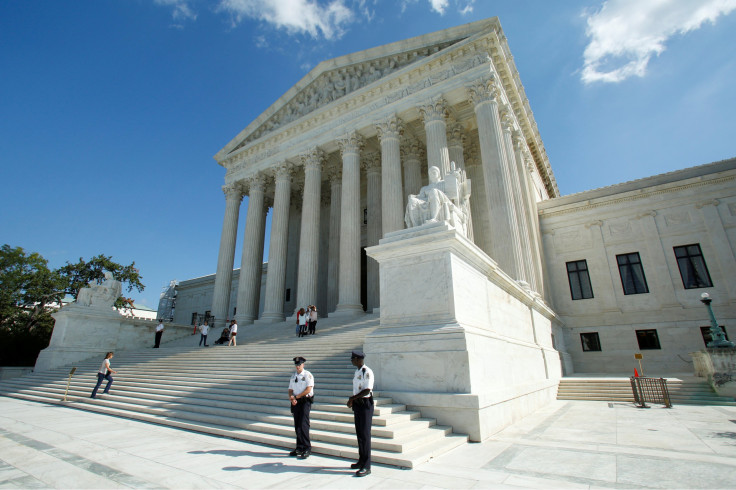Supreme Court Justices Up For Retirement: Next President Donald Trump Could Appoint Four New Judges

Republicans in Congress effectively blocked President Barack Obama from appointing a replacement for the late Supreme Court Justice Antonin Scalia, leaving that decision to President-elect Donald Trump. But Scalia’s seat isn’t the only one vulnerable to a new appointment by the real estate magnate.
Merrick Garland, the moderately liberal-leaning chief judge of the Circuit Court of Appeals for the District of Columbia and Obama’s pick for the vacant seat, has awaited Senate approval since March, soon after Scalia’s death. And there’s little chance he’ll get it before Trump takes office in January, as Senate Majority Leader Mitch McConnell (R-Kentucky) reiterated in September.
McConnell: "We’ve already made it very clear that a nomination for the Supreme Court by this president will not be filled this year." @CQnow
— Todd Ruger (@ToddRuger) September 13, 2016
Since Scalia’s death, the Supreme Court—split ideologically with four liberal-leaning justices and four conservative-leaning ones—has often come to impasses, requiring it to uphold lower courts’ decisions. Perhaps most notably, the court earlier this year tied 4-4 in a ruling on Obama’s expansion of his executive actions on immigration, affirming an appeals court’s injunction against the actions in place and leaving nearly 3.9 million people at risk of deportation. A conservative judge nominated by Trump could hold sway over a slew of upcoming cases involving transgender students’ rights, limits on racial bias in the justice system and the ability of religious schools to receive state grants.
Scalia’s vacancy, however, may not be the only one up for grabs in the next few years, as three of the justices may soon retire, giving Trump the chance to assemble a Supreme Court consisting of seven conservative judges and two liberal ones.
While 80-year-old Justice Anthony Kennedy tends to agree with the court’s conservative faction, liberal justices Ruth Bader Ginsburg, 83, and Stephen Breyer, 78, could soon retire, leaving open seats for a Republican president and a newly Republican-dominated Senate to fill.
Ginsburg, however, has rejected the notion that she will leave her post anytime soon. As she told NPR in October, her biographers said they would have preferred that she finish up her SCOTUS service prior to the book’s completion, but that in October, they chose “to flip the order.”
“I will retire when it’s time,” Ginsburg said. “And when is it time? When I can’t do the job full-steam.”
© Copyright IBTimes 2024. All rights reserved.





















